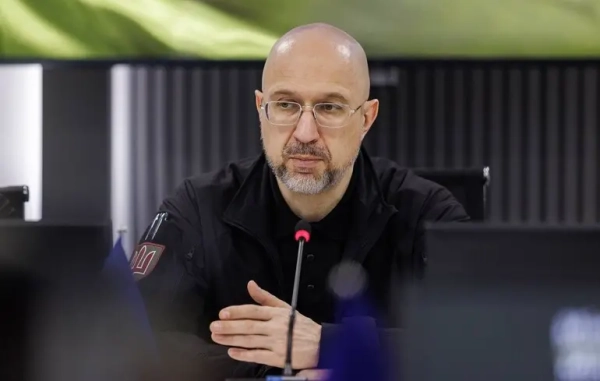
Democrat Kyrsten Sinema has been elected the next senator from Arizona. It was a close race against Republican Martha McSally — almost as close as the Florida Senate election between Republican Rick Scott and Democratic Sen. Bill Nelson.
Arizona’s elected leaders handled the emerging electoral consensus with comparative grace, though there was still fear-mongering to be found among GOP loyalists while the state kept counting votes. Still, it was nothing compared to what we’ve seen from the top Republicans in 2018’s other hotly contested Senate election, who have taken a much more aggressive and ultimately unsettling approach.
Scott, the governor of Florida, and his ally President Donald Trump have resorted to the most extreme rhetoric imaginable about voter fraud and electoral theft to attack Democrats while Florida tries to sort through yet another closely watched recount.
By contrast, Arizona’s foremost Republicans managed to wade through a heated election with their dignity in tact, remaining more measured and subdued. The president and Washington Republicans pressured McSally to turn up the heat, and her campaign did oblige at times, but the candidate herself never took up the fight with the same vigor that Scott has in Florida.
And almost as soon as the Associated Press called the race in Sinema’s favor, McSally conceded.
That sounds like a low bar. But when the president of the United States is cavalierly trafficking baseless allegations of voter fraud, some prominent Arizona Republicans set an important example if the country is ever to regain some sense of normalcy and trust in our elections. Trump’s outlandish comments earned a rebuke from retiring GOP Sen. Jeff Flake, who defended the integrity of the franchise.
Voters have to trust the process for self-government to work. That means you must keep your cool, even when the margin is maddeningly close.
Arizona Republicans versus Florida Republicans during Election Week
There has been no caveating, couching, or restraint on the part of Rick Scott and Donald Trump as the Florida Senate election heads to a recount. The president has outright called it electoral theft.
Scott — the sitting governor of the state now trying to figure out if he will become its next senator (and, to be clear, he almost certainly will be, barring a historic recount) — echoed the president’s comments.
All of this, despite no allegations from Scott’s own appointed election watchers or other state officials of any voter fraud or election rigging. A Florida judge reaffirmed on Monday that no evidence of wrongdoing has been presented, the Associated Press reported. As Vox’s German Lopez has detailed, some Florida counties have a history of bureaucratic incompetence when counting votes, but that is a very different thing than manufacturing them:
That’s how Republicans behaved in an election where they were and remain ahead. Yet even when McSally fell behind once more votes were counted, Arizona leaders still resisted (for the most part) the temptation to cast the election results as illegitimate.
Arizona’s Republican Gov. Doug Ducey, who won his own reelection quite easily, set the tone.
That was a perfectly reasonable position: Count the votes, be vigilant against any mishaps or malfeasance, and respect the results.
Part of the reason Arizona’s votes took so long to count is many voters vote by mail. But rather than use that as a basis for undermining the results, Arizona’s Republican Secretary of State Michele Reagan wrote a whole blog post explaining the process for tallying votes to help the public understand it better.
“Arizona takes elections seriously — from the poll workers to the county elections officials, and the Secretary of State’s office and everybody is working diligently to tabulate all of the election results in a manner that Arizonans can be proud of and, most importantly, trust the results,” she wrote in conclusion.
The Arizona Republican Party did sue over the process for matching voter signatures to validate their ballots, a move that prompted the same election-stealing rhetoric from Trump that he had already directed at Florida.
But in a marked contrast from Florida, where litigation is still ongoing over a similar issue, Arizona Republicans and county elections officials reached an agreement on how to handle voter signatures — an agreement that could end up benefitting the GOP if more rural voters have their votes counted, as the Phoenix New Times noted.
Still, the Arizona GOP became the glaring exception to the otherwise relatively civil proceedings in the Grand Canyon State. They personally attacked the top elections official in Maricopa County — and came close to alleging outright fraud, though they were forced to rely on innuendo rather than hard evidence.
McSally herself stayed pretty quiet over the last week. When her campaign did comment on the vote count, they did not, with a couple exceptions, raise the specter of fraud or election stealing. They insisted they believed she’d come out ahead in the end, just as any campaign in their position would have, though their candidate ultimately fell short.
“We will continue our effort to make sure all lawful ballots are counted,” the Republican campaign said on Sunday to conclude an update on the vote count.
One stain on McSally’s record, however, was a fundraising email from her campaign that said Democrats would “do whatever it takes to change the results of the election.” Her campaign also urged voters on Facebook to be mindful of any voting irregularities, a similar gambit that played into fears of fraud even if it managed to stop just short of alleging actual wrongdoing.
Other Republican officials were not nearly as measured in their comments either, as the New Times documented, warning of “suspicious” activity with no evidence. McSally did not do enough to combat the fear-mongering from her allies.
But at the top, Arizona Republicans pointedly never engaged in the same coordinated, systematic effort to undermine the Senate election there. Flake flatly contradicted Trump’s claims of fraud. A number of deceased Arizona Sen. John McCain’s former aides also defended the state’s integrity in counting votes. Ducey and Reagan were steady hands at the wheel as the count continues, likely toward a Sinema victory.
The dangerous Republican rhetoric delegitimizes election results
GOP cries of voter fraud aren’t new. They’ve been used to justify voter restrictions in Republican-led states across the country over the past decade. Trump himself falsely claimed he actually won the popular vote in 2016 if you disregarded a couple million “illegal” votes in California; he even set up a fruitless voter fraud commission to prove it.
And Republicans are surely sensitive to the Democratic charges against Georgia Secretary of State Brian Kemp, who held up tens of thousands of voters’ registration applications weeks before the 2018 election, during which he was running to become the state’s next governor. Alleging voter fraud against Democrats in high-profile races creates a perception that, hey, both sides do it.
But what is most worrying might not even be Trump’s tweets. Rather, White House and Republican National Committee officials were reportedly pressuring McSally to allege some kind of fraud or electoral malfeasance.
From James Arkin and Alex Isenstadt at Politico:
Trump and leading Republicans are willing to sacrifice their short-term political gain for the long-term erosion of faith in American elections. US elections have plenty of problems already (widespread voter disenfranchisement, for starters), and only half of Americans said earlier this fall that they thought America had “fair and open” elections.
With the president of the United States now deeply invested in tainting election outcomes in the eyes of voters, it could still get much worse. But some of these Arizona Republicans showed an alternative path forward, one that might serve to restore a little bit of faith in American democracy.
Sourse: vox.com






